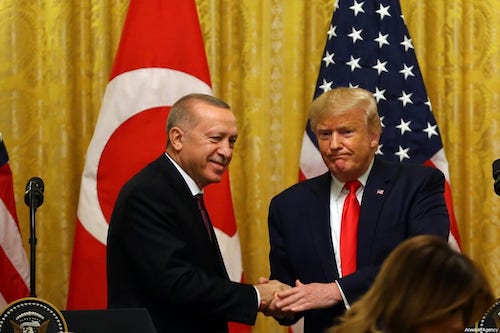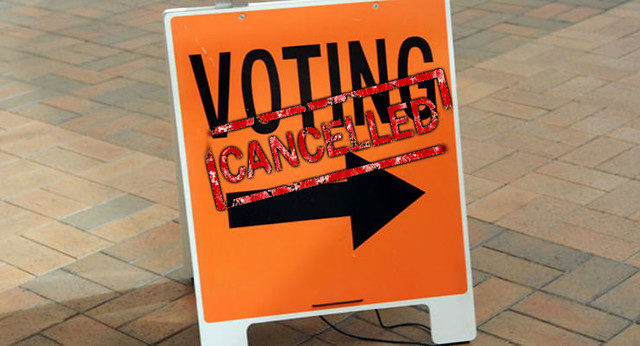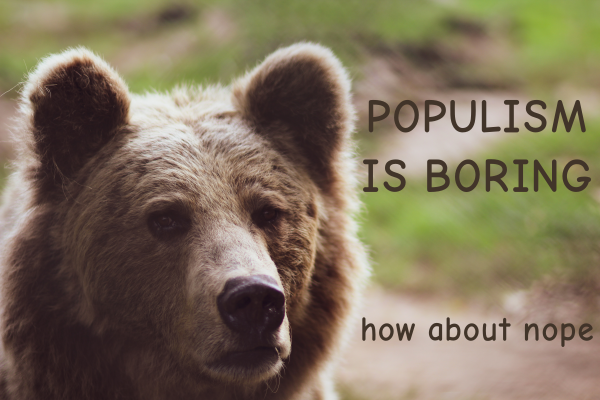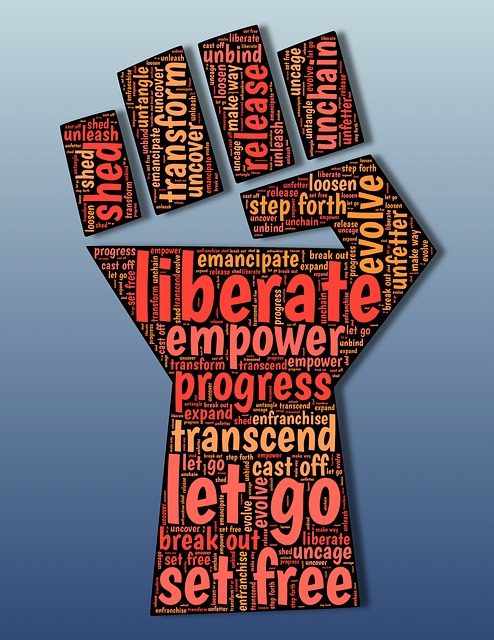this follows Part 1: California and The Resistance
Part 2: California and the Axis of Authoritarianism
It would be hard to overstate the importance, and the uniqueness among today’s global powers, of the current operational freedom enjoyed by California compared to actors outside of the Golden State. In addition to occurring in the U.S., populist authoritarianism is on the march around the world.
In the last decade, nascent democratic institutions have been weakened or outright crushed in places like Russia, Turkey and the Philippines. In the Middle East, the democratic aspirations of the Arab Spring has been followed by the further entrenchment of non-democratic systems in Egypt, Saudi Arabia and Syria. It is also notable that the economic modernization and growth of the middle class in China has not proceeded with any political liberalization, contrary to Western hopes.

Most alarming from a Californian point of view, is the rise of authoritarian populism and attacks on democratic processes in the democratic West. In the U.K., the politics of Brexit have polarized and paralyzed British politics and set the country on the precipice of economic self-destruction. In France, the “yellow jacket” movement has gutted President Macron’s popular support and undermined his modernizing economic reforms. In Germany the once unthinkable has occurred with the far right anti-immigrant AfD (Alternative for Germany), entering government at all political levels and introducing blatantly racist element into the German national discourse for the first time since World War II.
The quick rise of right wing populist movements in so many Western countries has been described by Vermont’s Senator Bernie Sanders as an “Axis of Authoritarianism” that threatens global democracy and the liberal world order based on the rule of law. Some countries like Canada and some governments like the current one in Germany have sought ways to fight back by talking about an “Axis of Multilateralism.” These efforts however face strong headwinds from within and from without, especially now that the current U.S. government has so openly embraced populist policies at home and a might-is-right, America-first policy abroad.
Even before being captured by a nationalist and extremist component of their base, Republicans within their regional bastions of power had already invested heavily in authoritarian practices. In states ranging from Florida to Texas to Wisconsin, conservatives have used restrictive voting laws, gerrymandering, dark money and constitutional anachronisms like the Electoral College to allow a minority of the US population to impose their will on the majority.
After 2018, despite a Republican loss in the Midterms, this anti-democratic bent has intensified. In Wisconsin, Republican controlled legislators have prevented a real transfer of power to a newly elected Democratic governor by rewriting laws in the lame-duck session after the election. Recurrent government shutdowns at the federal level are in themselves a clear expression of the willingness to disregard democratic principles to force through their agenda.

In addition to these anti-democratic tactics, the newly openly authoritarian Republicans and their regional base have embraced explicitly demagogic practices such as attacking a free press, employing propaganda to arouse fear and resentment, and most of all, scapegoating minorities. These were not just abstractions and ideological arguments. The current president and his congressional allies have put harsh nationalist policies into practice by separating children from parents, constructing iron cage internment camps, imposing information blackouts about detainees, increased immigration raids on long time residents, and turning a blind eye to increased hate crimes across the board, including by government officials.
In contrast to the backsliding of democracy and a diverse civil society in all the above mentioned countries and U.S. regions, California has been moving resolutely in the opposite direction. In the Golden State, Californians have forced authoritarian populism to retreat and instead conducted democratic reforms.
People who study California politics often mark Prop 187, a draconian anti-immigrant measure put before California voters in 1994, as the beginning of the end for anti-immigrant politics in California. Though the measure passed with nearly 60% of the vote, it was overturned in the courts, and spurred a generation of previously disengaged Latinx Californians to get more involved in California politics. It quickly became clear that Prop 187’s “win” represented not the sentiments of Californians as a whole, but rather a small subset of historically active voters that skewed older, whiter, and more conservative.
The complete collapse of Trump-style populist politics in California came later, beginning with a recall election 2003 against sitting Democratic governor Gray Davis, that propelled celebrity Republican politician Arnold Schwarzenegger to the Governor’s office. Similar in style to Trump, Schwarzenegger was brash, an outsider in his own party, and had never before served in elected office. (But note: while Trump’s start in politics was birtherism, Schwarzenegger’s was an initiative measure to fund after-school programs.)
Whether as a matter of style or policy, Schwarzenegger clashed with the largely Democratic California legislature. Frustrated, he used a trick employed by populist politicians around the world: bypass other elected officials and put his agenda directly before the voters. In November 2005, he called a special election with four of his own initiatives on the ballot.
But this story has a California twist. In Hungary, Poland, Turkey, Venezuela, and other countries, being able to vote directly on laws has felt like a once-in-a-generation chance upend “the system” for good (and it often was, the system upended being democracy). In contrast, Californians have had access to direct democracy for over a century, and voting on directly on laws is routine if not somewhat tedious. Californians voted down not only every proposition in Schwarzenegger’s package, but every other measure that appeared in that special election as well, rendering the entire exercise a pointless waste of time and money.

In the end, Schwarzenegger’s legacy was not undermining democracy, but strengthening it. He later worked with other politicians and non-profit advocacy groups to pass nonpartisan redistricting and a top-two primary system that virtually eliminated the “spoiler effect” in California. During this time, voter registration was broadened and made more accessible. It is not so much California does not have populism but that the “will of the people” is so thoroughly integrated into California’s system of government that California voters are largely immune to its populism’s excesses (that is, authoritarian populism), and instead can channel it into positive reforms.
For these reasons and more, the world has looked to California for leadership against the global advance of divisive and anti-democratic developments. By and large, the state has seemed ready and even eager to undertake this leadership role.
This success, however, is in danger of obscuring the fact that California’s power at the national level is nowhere near proportionate to the size of California’s population or power of its economy and culture. Deep structural disadvantages means that despite its enormous wealth and achievements, California actually has very little power either to work within the Federal system or to fix it. Thus, the most promising aspect of California’s potential is not to fix the United States, but to lead a global resistance to populist authoritarianism, starting at home.

Because of its unique operational independence, California has the freedom to enact further reforms that befit its innovative and world-changing spirit. California can parley its independence from anti-democratic and demagogic actors to go about building a modern, world class democracy. Californians can create for themselves a genuine and functioning local, regional and national citizenship that they are missing in today’s status quo United States. In so doing, California may create the spark that ignites similar revivals of democracy around the world.
—T. Vollmer
Followed by:
